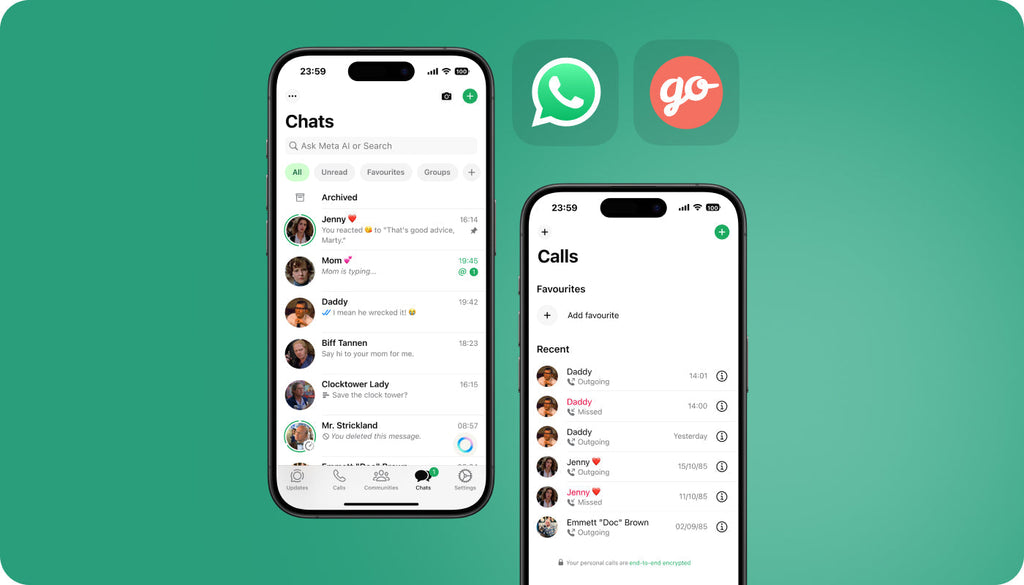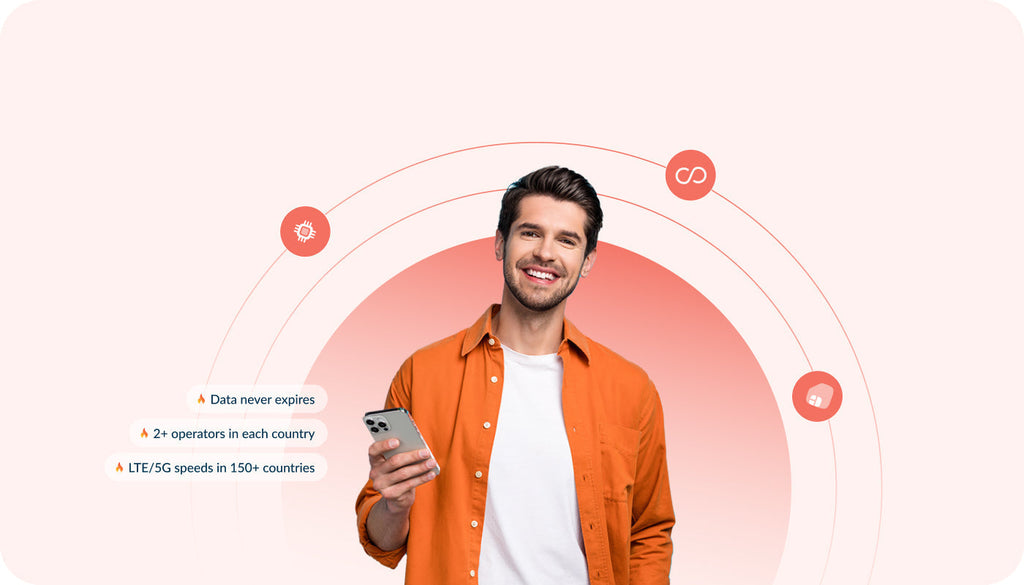Fastest Networks on GSM – 3G, 4G, EDGE, UMTS, HSPA, LTE
Carriers often bombard you with slogans like “The fastest 3G network on this side of the Atlantic”, “The only 4G service in the US” and other marketing slogans. We at KeepGo decided to set things straight and answer a few questions we often encounter. How did we end up here? How does it effect the average user? Are there any advantages or disadvantages to these networks?
First, lets roll back the clock to the last few years of the 20th century – cellphones are spreading like wildfire. Their popularity is growing, and simultaneously so does the spread of the internet. Carriers are beginning to realize that this nifty device can be used for other ways than just for calls and texts.
Through time, data speeds grew more and more with the emergence of protocols like GPRS (2.5G) and EDGE (2.75G), which began offering speeds of up to 115kbps and 236kbps, respectively. As these cellular networks were mostly aimed at voice services, and data was only a welcomed (but not necessary) solution, the need for networks that could accommodate high-speed data services became a natural way forward. Though it took some time for handset manufacturers to catch up (namely, after the launch of the iPhone), the deployment of 3G (UMTS) networks enabled carriers to offer services and devices which are internet-centric and bring the WWW to the user. That, combined with the absorption of mp3 players, cameras and computers into the mobile phone has created the need for super-fast data networks.
Building on top of existing 3G infrastructure, carriers began offering higher and higher speeds with networks being upgraded to support more bandwidth – these networks are the 3.5G (HSPA, with speeds up to 14 mbps) and 3.75G (HSPA+ with speeds up to 84 mbps).
So this is now, but what’s next? The next step for cellular networks is 4G, and while most American would say “but T-Mobile already has a 4G network” – we beg to differ. T-Mobile’s “4G” network is actually 3.75G (HSPA+), offering users a speeds of up to 84 mbps (with future upgrades), but no faster than that. While to fall under the 4G umbrella networks must be able to offer end users with speeds of 100+ mbps. So in this case, even Verizon’s LTE network shouldn’t be able to call itself 4G, at the moment. So what can you expect from 4G networks? like we mentioned, 100+ mbps internet connections. This you the option to connect your phone to your TV and use it like VOD box. With today’s HD video technology you can use your phone to have conference calls at 1080p quality – anything that is today constrained by your carrier, will be able realize with 4G networks.
What are the advantages or disadvantages to these high-speed networks? Obviously, speed – 3G networks are a lot faster in terms of data than 2G could ever be. Voice – since 3G is able to carry a lot more data, this opens up bandwidth that can be used to carry higher quality voice calls (though most carriers have not implemented this possibility). Battery – an interesting thing about 2G networks is that they were much more battery-friendly. One of the reasons lies in the frequency they used – 2G networks worked mostly on the 900 range. At this frequency the radio waves are able to penetrate much deeper than higher frequencies – so if you live in a steel building or are in a basement, your chances of getting reception are much higher with 2G networks, making your phone work a lot less to maintain a signal, resulting in a better battery performance. To tackle this problem carriers needed to deploy a lot more antennas, to compensate for the reduced range.
As cellular devices and smartphones became an expected feature in our lives, so did the assumption that we can use them anywhere we please. But as roaming data costs have remained sky high, the ability to enjoy high-speed cellular services abroad became an expensive indulgence. We at KeepGo work very to hard to make that experience common and accessible. Next time you venture out and take your smartphone with you, give us a go – you will be able to enjoy the fastest network your destination has to offer, at a fraction of the cost your carrier will charge you.
Enjoy 3Ging…




